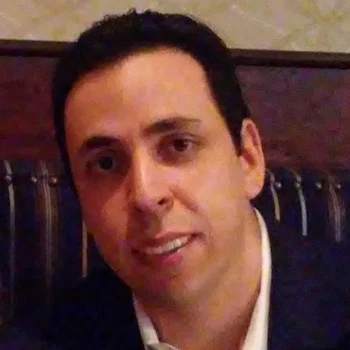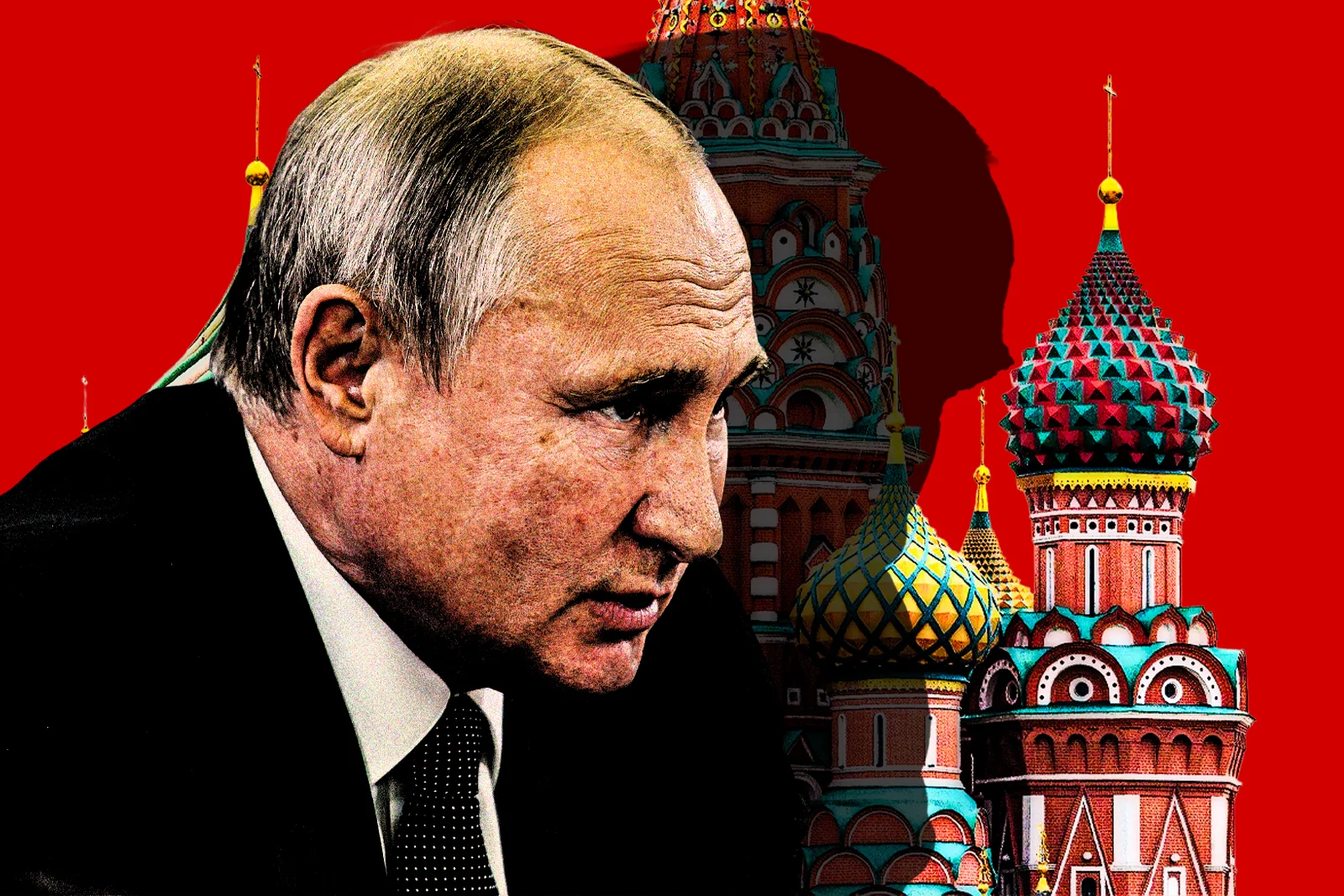
Vladimir Putin’s Unshakeable Grip on Power
A trend among Russia scholars has emerged since Vladimir Putin returned to the presidency in 2012. To be specific, scholars have been confidently predicting his loss of power and the end of his political career. If one looks through the articles of reputable journals, scholars have confidently forecast the end of United Russia’s dominance and a more viable multi-party system in the immediate future. All these predictions and assertions have so far turned out to be baseless. Vladimir Putin, United Russia, and the siloviki and technocrats within the Putinist umbrella have also stayed in positions of governmental preeminence. What exactly are all these scholars not assessing correctly?
Vladimir Putin is, first and foremost, a powerbroker of the highest order. It was he who came into government and seized on the corruption in the Kremlin and economy. When Vladimir Putin became president, he immediately organized the powerful oligarchs who controlled the Russian economy, and therefore, he became the most powerful actor in Russia. Putin used his powerful position in government to tame the avarice found among the business elites in the new economic landscape.
Putin’s delegation, vision, and conflict resolution among the most influential and powerful businesspeople in Russia enhanced his control of all commerce and national economics. His position as chief powerbroker has not only led all businesspeople in Russia to depend on his willingness to accommodate business ventures and projects, but it has also led him to become a silent shareholder in Russia’s most successful businesses.
Vladimir Putin may possibly be the world’s first trillionaire if not one of the wealthiest men in history. Russia’s incredible amount of natural gas and oil has made it one of the most important countries in the global economy. Russia’s oil and gas economic position makes it a formidable competitor to Saudi Arabia and the other OPEC countries combined. Gazprom and Rosneft are Russia’s energy conglomerates with CEOs and board members who are Putin loyalists. Gazprom, Russia’s largest state-owned company, is headed by CEO Alexey Miller and Chairman of the Board Viktor Zubkov.
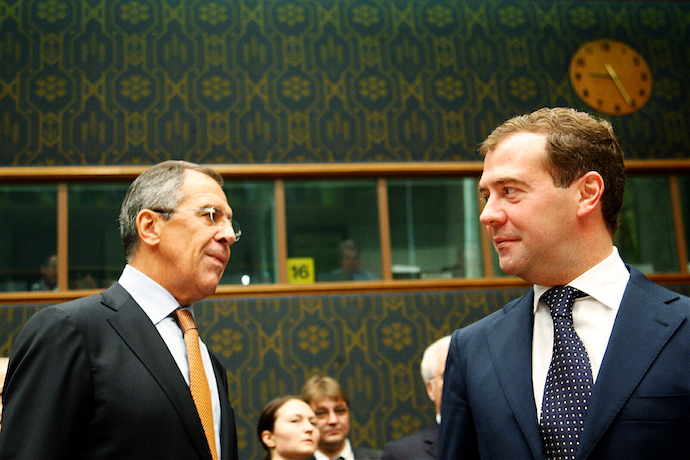
Both of these men have been politically and professionally involved with Vladimir Putin since the 1990s. They are both Putin loyalists who have worked prodigiously to placate their chief powerbroker who appointed them to these positions and determines their career path. Rosneft is run by a Putin-appointed CEO and Chairman who possesses the hawkish truculence that has placed him firmly within Putin’s silovik base. Rosneft’s Igor Sechin has been the chief businessperson for energy relations with a myriad of foreign energy companies, such as Exxon Mobil.
Vladimir Putin’s control of Russia’s most profitable business organizations is a key reason for his unshakeable grip on the levers of power. In addition to being a chief powerbroker in the Russian economy, he is receiving profits from these companies by being a silent shareholder. This flow of incredible wealth is a key factor in his continuing presence in the highest corridors of power.
The power brokering in the Russian economy has made Putin the one who molds the financial and business sectors according to his wishes. This power brokering extends to within the Kremlin. In 2000, Vladimir Putin purged the effete and corrupt bureaucrats under Boris Yeltsin and appointed siloviki and technocrats loyal to him. The siloviki were former KGB operatives from St. Petersburg who were ideologically and temperamentally compatible with the new president. The years have passed, and the siloviki have absorbed bureaucrats from other security institutions post-1991 and have included such individuals from outside of the St. Petersburg political scene.
Moscow siloviki who served in security institutions within the Russian government are now important members of Putin’s faction. The technocrats are similarly now composed of members who began their careers post-1991 and are outside of the St. Petersburg political scene. The St. Petersburg bureaucrats no longer monopolize the upper echelons of the Russian government. Professor Sergei Khrushchev, the youngest son of Soviet Premier Nikita Khrushchev, once remarked that the relationship between siloviki and technocrats was similar to the relations “between cats and dogs.”
When technocrat Dmitry Medvedev was president from 2008 to 2012, the silovik-controlled Russian Security Council led by Nikolai Patrushev was constantly relegated to a mere forum for communication, not a policy advisory and formulation mechanism as it was intended. The entire time Medvedev was president he marginalized his Security Council as a method to blunt the silovik voices who would have inserted their policy input. The evolution of the internal composition of respective factions has not changed the uneasy alliance between these two groups of vastly different bureaucrats to this very day.
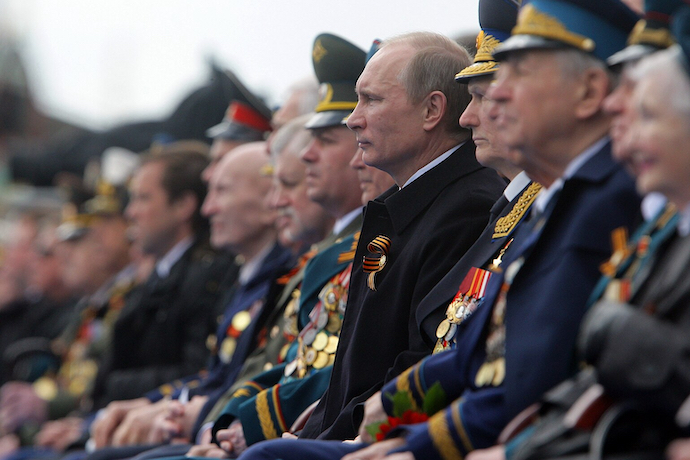
The power brokering by Vladimir Putin has created a competition between technocrats and siloviki for Putin’s support. This competition has kept Putin firmly in the center as the centripetal decision-making force and the center of centrifugal conflict resolution. All internal processes revolve around Vladimir Putin being the final authority in policy debates.
During Putin’s first term, Silovik and Minister of Defense Sergei Ivanov opposed the Kremlin’s move to support the U.S. with military basing in Central Asia after the September 11th attacks. Sergei Ivanov had been described as “Putin’s twin” and the next viable president. Vladimir Putin continued his plans to support U.S. military operations after 9/11 uninterrupted, while Sergei Ivanov retracted his statements a few weeks later and endorsed Russia’s assistance with military basing in the post-Soviet space. It did not take long for Putin to sway his Minister of Defense behind closed doors. Sergei Ivanov’s tenure in government depended wholly on the wishes of Vladimir Putin.
While much has changed from the Yeltsin years, two fundamental facets of Russia’s political life have remained unchanged. The Yeltsin liberals who occupied positions in the Ministry of Foreign Affairs possess a chameleon-like ability to maintain the Putinist vision without any obstruction. As professor and Russia expert Mark Galeotti once remarked, the Yeltsin liberals had a choice: either conform to Vladimir Putin’s wishes or be purged. The career diplomats acquiesced to all policy shifts and reversals and continued to work in support of the Putinist vision. Igor Ivanov, Minister of Foreign Affairs under Boris Yeltsin and Vladimir Putin from 1998 to 2004, worked in concert with Boris Yeltsin’s vastly different successor and always referred to Vladimir Putin and the siloviki with respect and admiration. This continues under Igor Ivanov’s successor Sergei Lavrov who has been a Putin loyalist since 2004. The foreign affairs arm of the government is now being filled with fewer Yeltsin-era bureaucrats and more post-Yeltsin career diplomats. The chameleon-like quality of acquiescing to the Putinist vision and being non-obstructive in the Ministry of Foreign Affairs remains unchanged.
The second facet is that whoever becomes president is a hand-picked successor. Putin’s power brokering during the Medvedev presidency is a case in point. Sergei Ivanov and Igor Sechin were seen as the most likely candidates for president when Putin was ineligible to run in 2008. Putin, while calibrating the mechanisms of power during his interregnum from the presidency, decided the dutiful, loyal Dmitry Medvedev, a technocrat with little experience in executive leadership, should become the next president. Medvedev’s fawning over the man he considered to be his mentor was well-known, and now Putin, who was eying an eventual return to the presidency, selected a man he knew would be loyal and open to his influence.
In constitutional terms, Dmitry Medvedev became the most powerful government official and decision-maker in Russia from 2008 to 2012. During the Libyan civil war, when Muammar Qaddafi was struggling to remain in power, Medvedev instructed Ambassador Vitaly Churkin to abstain from voting on the United Nations Security Council when a NATO-imposed no-fly zone was proposed to end the bloodshed against innocent civilians by the regime. The resolution passed, and NATO was able to insert its military footprint in Libya. Putin vociferously protested Medvedev’s decision and claimed that the United Nations only did this so that the West could take control of Libya’s oil fields. Medvedev, whose legal background gave him the understanding that constitutionally he could not be challenged, asserted that this was the proper decision. During this point, Medvedev was popular among the Russian people and considered whether to run for reelection in 2012.
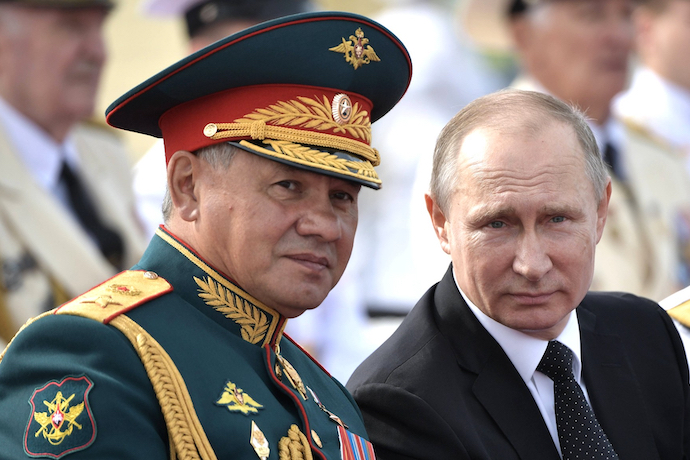
Vladimir Putin, who was the most powerful business force in the Russian economy and most influential arbitrator between siloviki and technocrats, engaged in power brokering that has come to define modern Russia. At approximately the same time, Dmitry Medvedev announced that he chose Putin to be the United Russia candidate for president in 2012. This continued the trend of handpicking presidential successors in today’s Russia. Boris Yeltsin handpicked Putin. Vladimir Putin handpicked Dmitry Medvedev. Dmitry Medvedev handpicked Vladimir Putin. Putin, whose powerbroker status in the Russian economy and government demolished any desire by Medvedev to run again. Medvedev may have been the most powerful member of the government in constitutional terms, but his influence in economics and bureaucracy paled in comparison with the mentor he continues to fawn over.
As the NATO-imposed no-fly zone took effect, the international community’s attention turned to the Syrian civil war with Bashar al-Assad’s forces committing war crimes and crimes against humanity, specifically by using chemical weapons in the mission to bolster the regime’s power. Dmitry Medvedev was faced with a situation similar to Libya, but any of his commitments to human rights and support for humanitarian intervention were muted by the siloviki base headed by Vladimir Putin, the most likely person to win the presidency in 2012. Putin maintained close relations with the Assad regime economically, politically, and diplomatically. Putin would never have consented to sanctions against Syria, and Medvedev willingly obliged to oppose sanctions on the UN Security Council. After Putin returned to power, Russia’s support for Assad continued and was the cornerstone of support that allowed President Assad to continue his rule. Russia’s support for the Assad regime is a key reason the Syrian civil war did not result in the end of the Assad family’s rule.
Medvedev’s presidency was in the shadow of Putin’s possible return to the presidency and the cognizance that Putin may wield the powerful constitutional powers of Russia’s imperial presidency when Medvedev leaves office. Medvedev continued the Putinist policy of supporting the Assad regime in Syria, and this continued during Putin’s second presidency. Bashar al-Assad rewarded Putin by giving Russia access to naval bases in Syria. This was a grand victory for Putin, whose silovik worldview would lead him to embolden Russia’s defense interests at any cost and equalize the security balance with the West.
The Putinist policy imprint during the Medvedev presidency was a constant presence. When the Russia-Georgia War in 2008 was waged, and Russia’s support to oust an anti-Russian leader in Kyrgyzstan was implemented, this was fulfilling a silovik, anti-NATO, anti-West policy direction that was characteristic of the Putin presidency prior to Medvedev taking office. When Professor Sergei Khrushchev was asked about these policy moves in Georgia, Kyrgyzstan, and Syria, he wholeheartedly agreed that planning prior to the Medvedev presidency was responsible for the Russian maneuvers on the world stage.
Professor Khrushchev once stated: “Of course, there was planning during the Putin presidency! When I once asked Secretary of Defense Robert McNamara whether Kennedy wanted to invade Cuba, he told me: ‘No, but we planned for it.’” Professor Khrushchev’s point was that the Putinist vision of foreign policy was seen in many decisions made, even though Vladimir Putin was not president during that time. Putin’s power brokering and influence within the government knew no limits.
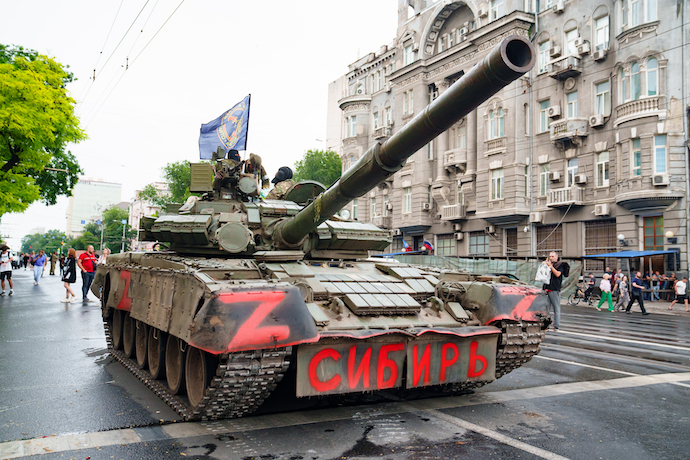
Dmitry Medvedev’s presidency ended with only one notable foreign policy initiative in Libya that contrasted with the Putinist worldview. As the 2012 presidential election drew nearer, Medvedev understood that Putin would be the most powerful member of the Russian government when reelected to the Russian presidency. The 1993 Russian Constitution was written after Boris Yeltsin maintained his constitutional superiority over the other branches of government. Yeltsin’s constitution effectively nullified the power of the Duma and Russian Supreme Court. The Duma was relegated to a legislative body that merely rubberstamps proposed legislation by the president, and the country’s supreme court was neutralized by allowing the president to appoint pro-government judges for lifetime appointments with a larger composition of jurists as initially envisioned. The president of the Russian Federation is essentially the most important decision-maker in relation to the other branches and within the executive branch of government. Professor Sergei Khrushchev described the 1993 constitutional crisis that emboldened the presidency with a new constitution as: “Yeltsin’s coup against the constitution.”
Vladimir Putin became the ultimate decision-maker by virtue of the Russian constitution that Boris Yeltsin ingrained with his imperial impulses and understanding of the role of president. As president of the Russian Federation, Putin was constitutionally the final authority on all policy debates and intergovernmental conflicts. The Yeltsin-authored constitution gave the president unlimited immunity, executive power, and constitutional superiority. Medvedev’s presidency ended by placating and appeasing the man whose power brokering within and between the factions, as well as the Russian economic sectors would now be enhanced by retaking the constitutional powers that would make him the most important individual in Russia.
The most recent and notable challenge to Putin’s power was indirect. Yevgeny Prigozhin, the former head of the mercenary Wagner Group, launched a rebellion against Russia’s Ministry of Defense and specifically targeted Minister of Defence Sergey Shoigu and Chief of the General Staff Valery Gerasimov for what Prigozhin described as defense blunders, inadequacies, and incompetence, as well as direct sabotage and military attacks against the Wagner Group. Prigozhin and his forces marched toward Moscow but rarely was anything said directly against Putin. Prigozhin was careful not to directly accuse Putin of military failures and sabotage of the Wagner Group. Prigozhin’s silence about Putin’s role in what he described as systemic defense failures is powerful evidence that no one has ever mounted a successful challenge against Putin, and no one has the ability to do so.
Putin’s unshakeable grip on power is threefold. First, his loyalists and appointed oligarchs maintaining elite positions in the Russian economy have made him the most powerful factor in Russia’s business affairs in addition to increasing his personal wealth tremendously. Second, the siloviki and technocrats who are in the Kremlin depend on Putin to delegate, organize, formulate, and decide policy debates and conflicts in order to maintain cohesion within the government. Third, the 1993 Russian Constitution authored by Boris Yeltsin enables Putin to mold and decide the affairs of government without any constitutional, legislative, or judicial obstruction or method to challenge the president’s desires. These three factors, in unison, have enabled Vladimir Putin to be unchallenged. Experts have predicted Putin’s demise far too prematurely. Vladimir Putin controls all the levers of the Russian economy, the government’s bureaucracy, and constitutional mechanisms.
Putin, by installing loyalists to government and powerful businesses, has been the chief powerbroker in deciding who will help him implement his vision of Russia and who will not. The constitutional superiority of Putin’s position safeguards his decisions from any challenge, and his personal control of the individuals in government and business, as well as the constitutional powers of the presidency, make him truly unchallengeable. The foreseeable future is one with Putin firmly in power in the Kremlin.
